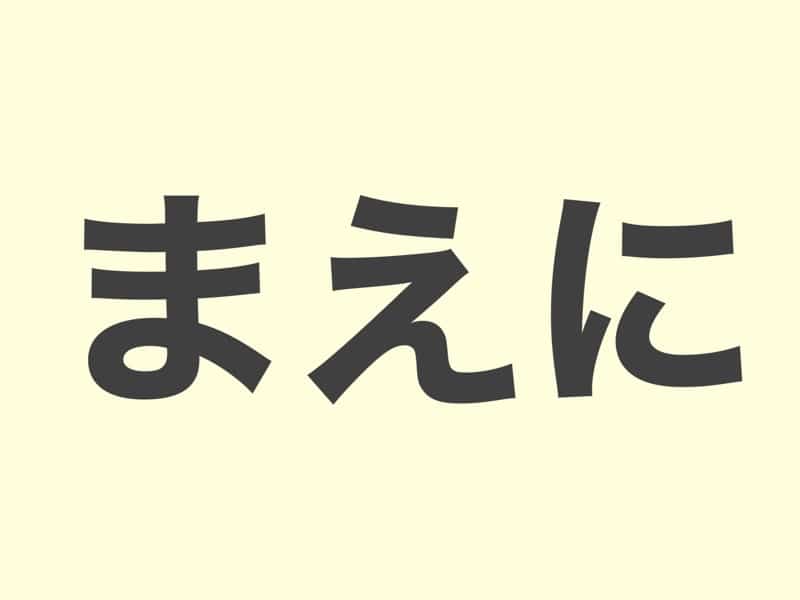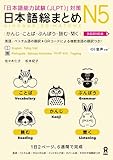説明 (Explanation)
文法(Grammar):辞書形+まえに・名詞+のまえに・期間+まえに (dictionary form+maeni, noun+no maeni, time+maeni)
意味 (Meaning):時間や順序を示すために使われます。また、特定の過去の時間を指して「~年前」という意味でも使われます。
英語(English):The Japanese expression まえに (mae ni) is used to indicate “before” in terms of time or sequence. Additionally, it can mean “ago” when referring to a specific time in the past. It can also mean “in front of.”
Even when using the past tense, you can still use the dictionary form before まえに (mae ni). However, in the second sentence, you should change it to the past tense to ensure the entire sentence is consistent in past tense.
例文 (Examples)
Dictionary form+maeni: Before [doing]
- 食べる前に、手を洗います。
- 寝る前に、本を読みます。
- 日本語へ来る前に、日本語を勉強しました。
Noun+no maeni: Before [noun]
- 授業の前に、宿題をします。
- 食事の前に、勉強します。
- 友達の誕生日の前に、プレゼントを買いました。
Time+maeni: Before [time period]
- 6か月前に、日本語を始めました。
- 半年前から、日本語を勉強しています。
- 1年前に、日本へ行きました。
Place+no maeni: In front of [place]
- 駅の前に、ジムがあります。
- コンビニはうちの前です。
ひらなが (Hiragana)
Dictionary form+maeni: Before [doing]
- たべるまえに、てをあらいます。
- ねるまえに、ほんをよみます。
- にほんごへくるまえに、にほんごをべんきょうしました。
Noun+no maeni: Before [noun]
- じゅぎょうのまえに、しゅくだいをします。
- しょくじのまえに、べんきょうします。
- ともだちのたんじょうびのまえに、プレゼントをかいました。
Time+maeni: Before [time period]
- ろっかげつまえに、にほんごをはじめました。
- はんとしまえから、にほんごをべんきょうしています。
- いちねんまえに、にほんへいきました。
Place+no maeni: In front of [place]
- えきのまえに、ジムがあります。
- コンビニはうちのまえです。
Romaji
Dictionary form+maeni: Before [doing]
- Taberu mae ni, te o araimasu.
- Neru mae ni, hon o yomimasu.
- Nihongo e kuru mae ni, nihongo o benkyou shimashita.
Noun+no maeni: Before [noun]
- Jugyou no mae ni, shukudai o shimasu.
- Shokuji no mae ni, benkyou shimasu.
- Tomodachi no tanjoubi no mae ni, purezento o kaimashita.
Time+maeni: Before [time period]
- Rokkagetsu mae ni, nihongo o hajimemashita.
- Hantoshi mae kara, nihongo o benkyou shiteimasu.
- Ichi nen mae ni, Nihon e ikimashita.
Place+no maeni: In front of [place]
- Eki no mae ni, jimu ga arimasu.
- Konbini wa uchi no mae desu.
英語翻訳 (English Translation)
- I wash my hands before eating.
- I read a book before sleeping.
- I studied Japanese before coming to Japan.
- I do my homework before class.
- I study before meals.
- I bought a present before my friend’s birthday.
- I started learning Japanese six months ago.
- I have been studying Japanese for half a year.
- I went to Japan one year ago.
- There is a gym in front of the station.
- The convenience store is in front of my house.





コメント